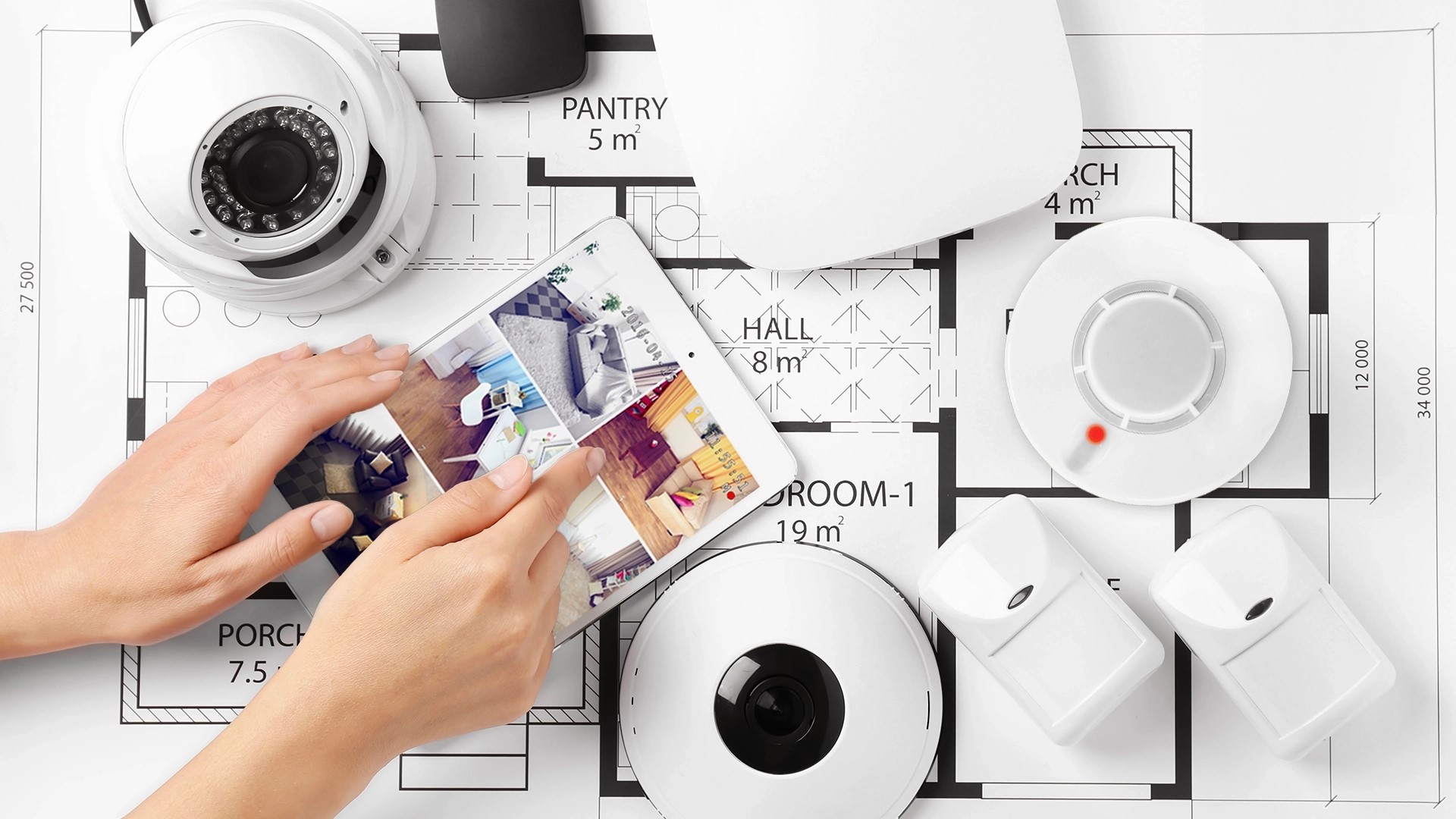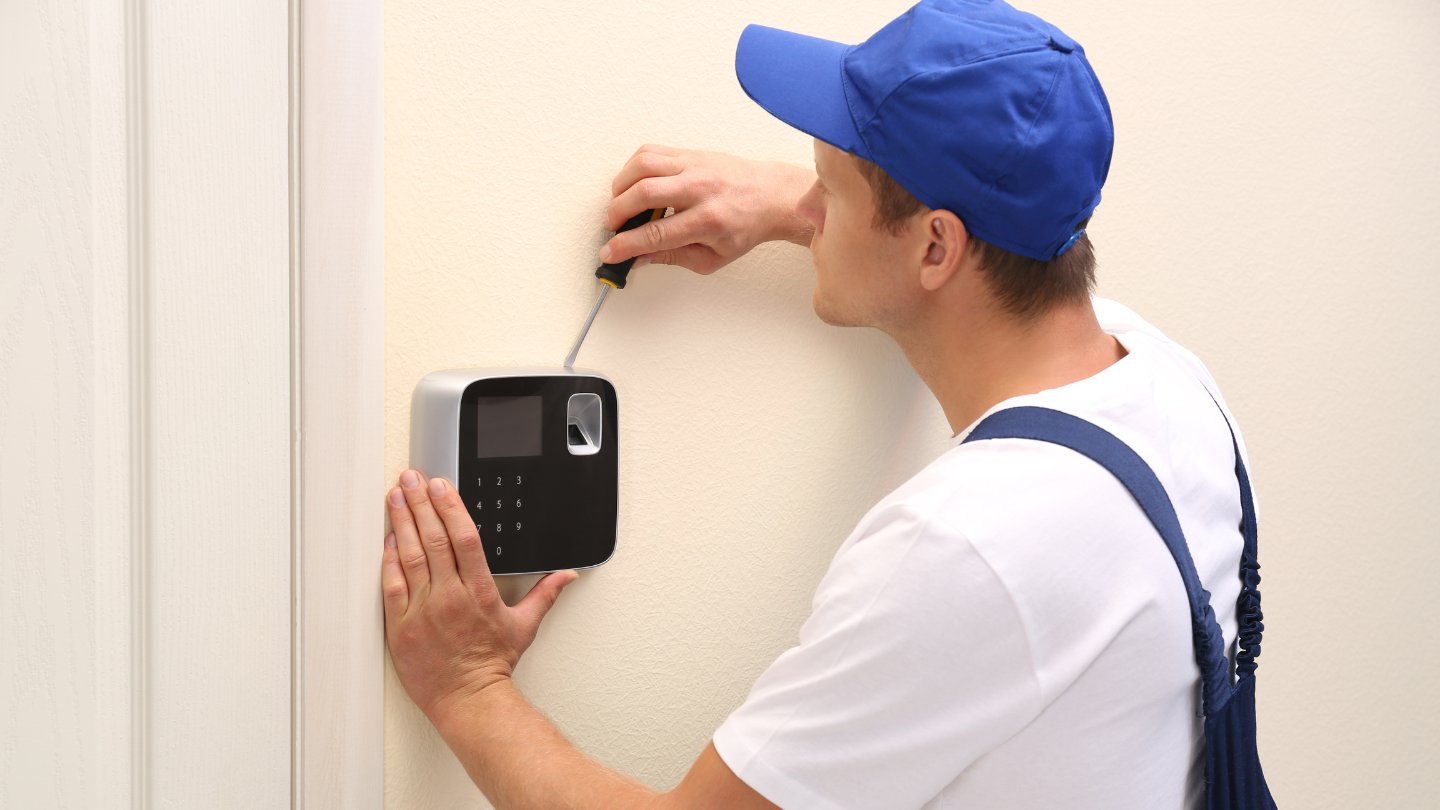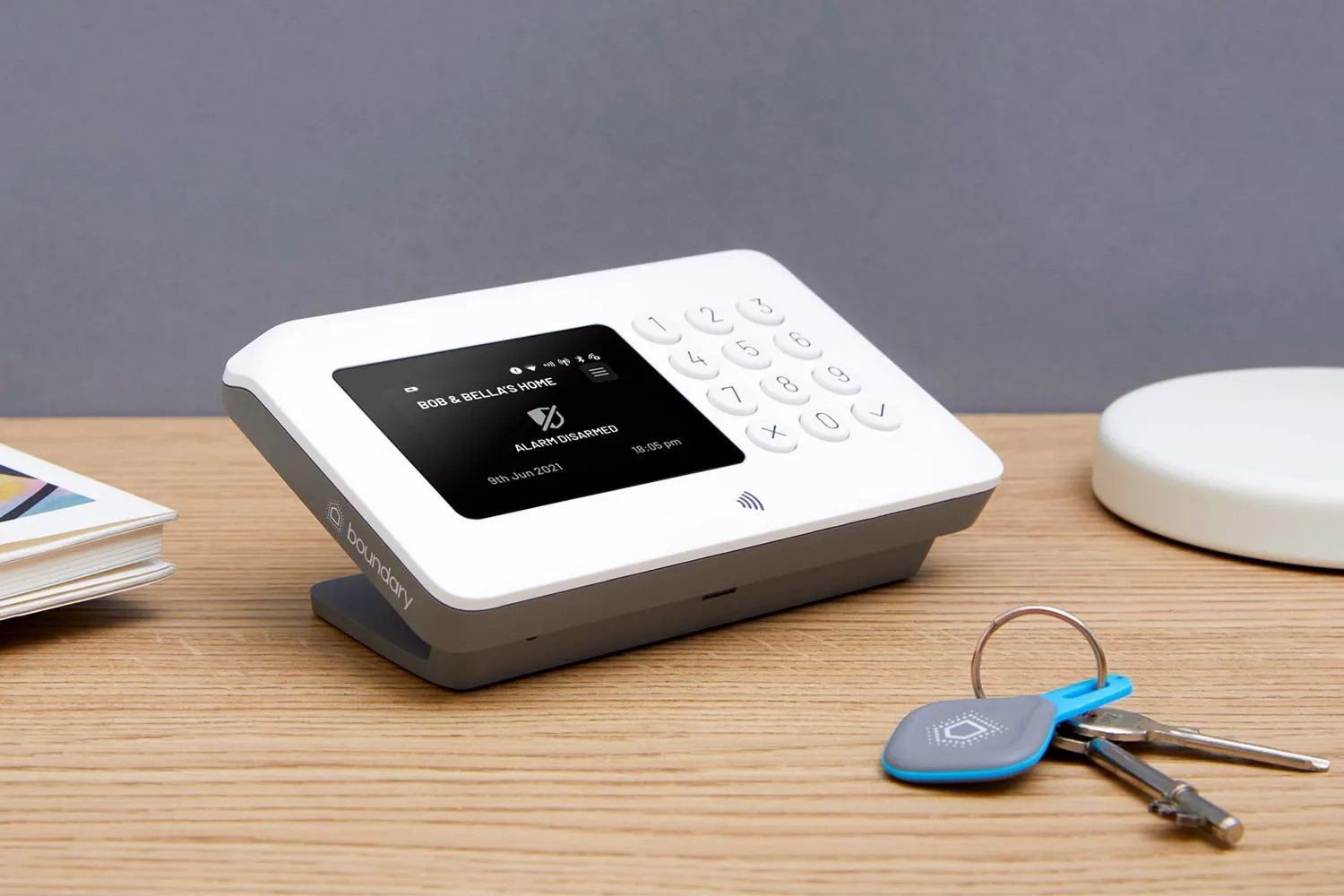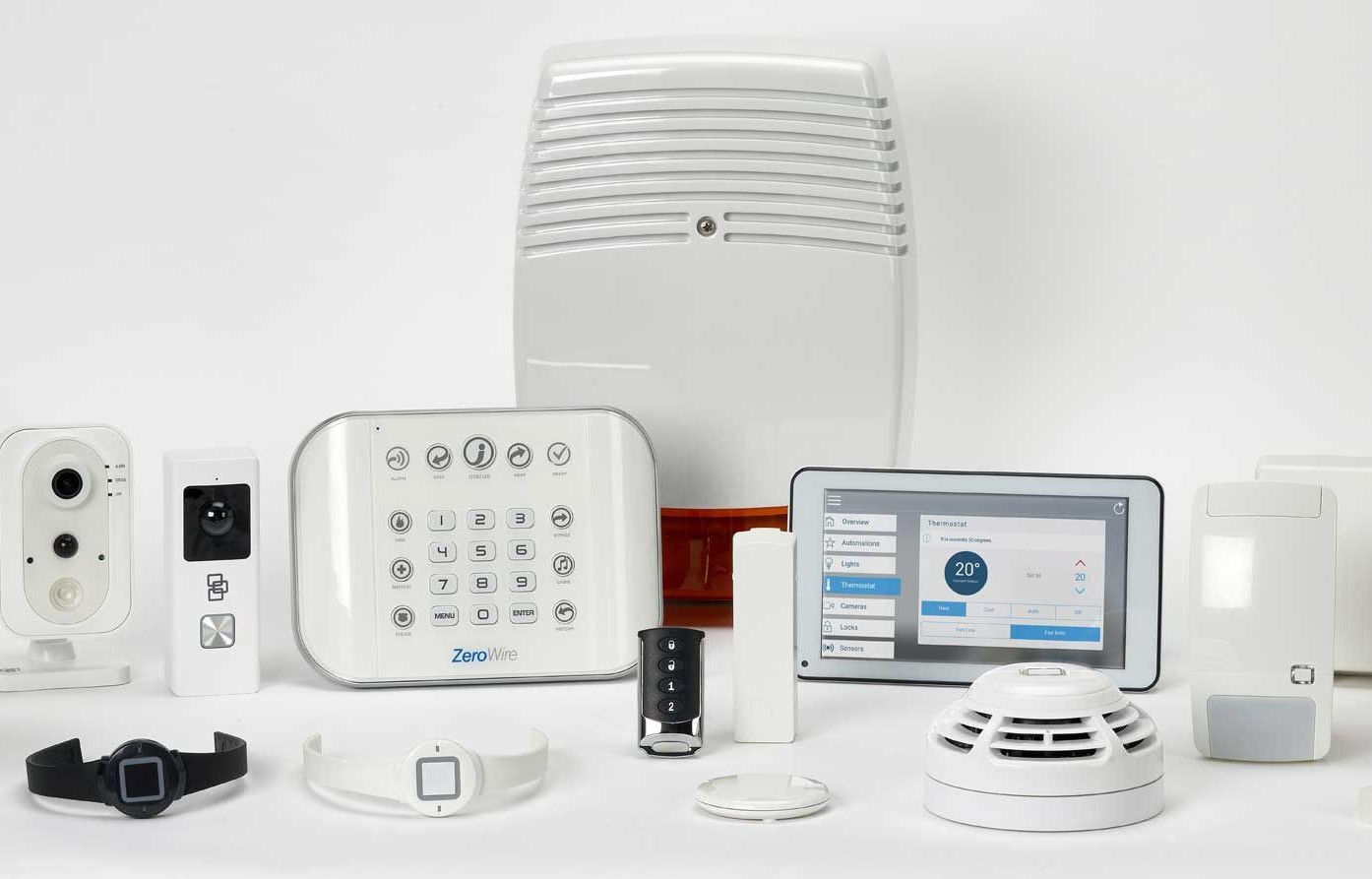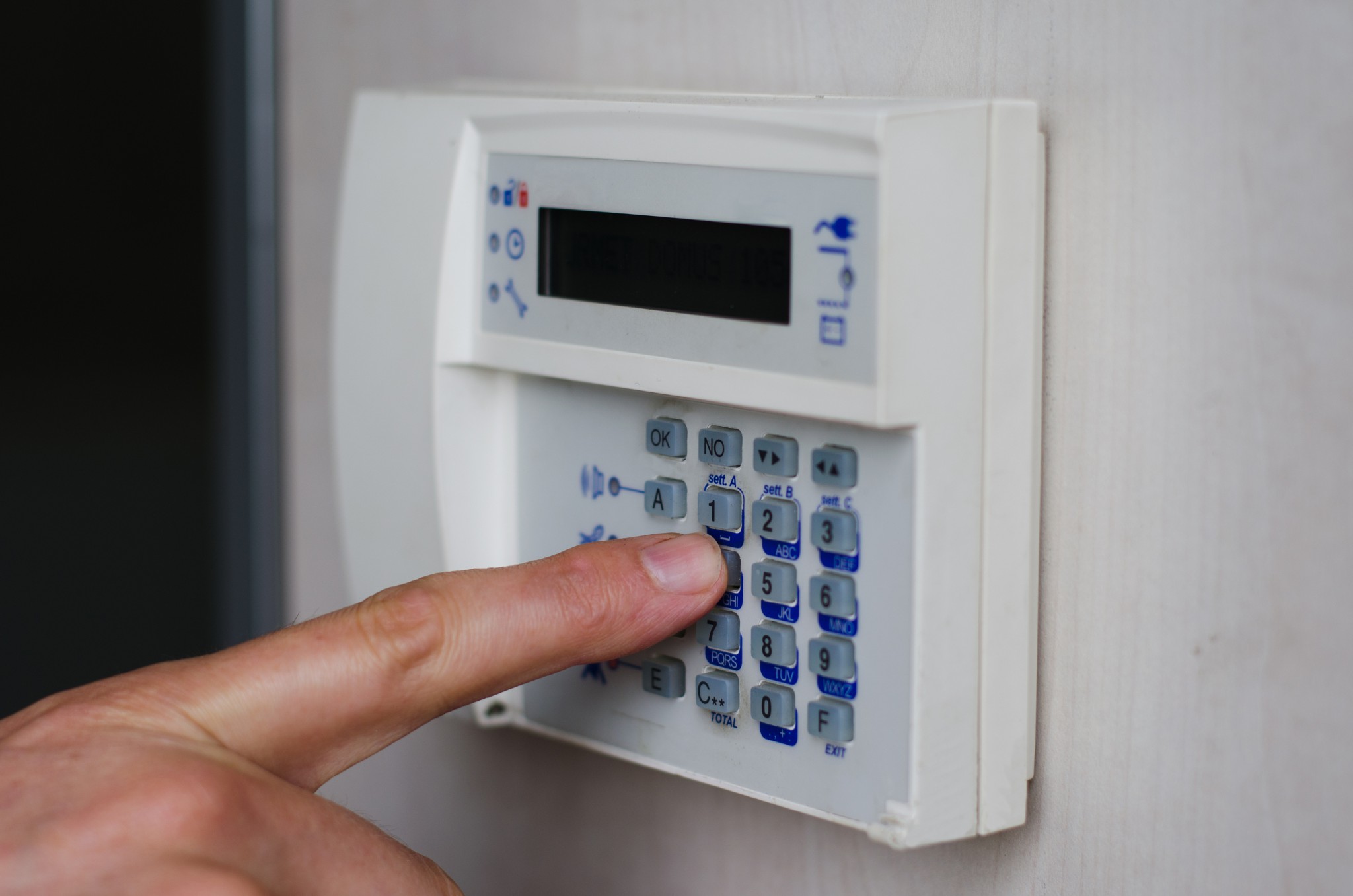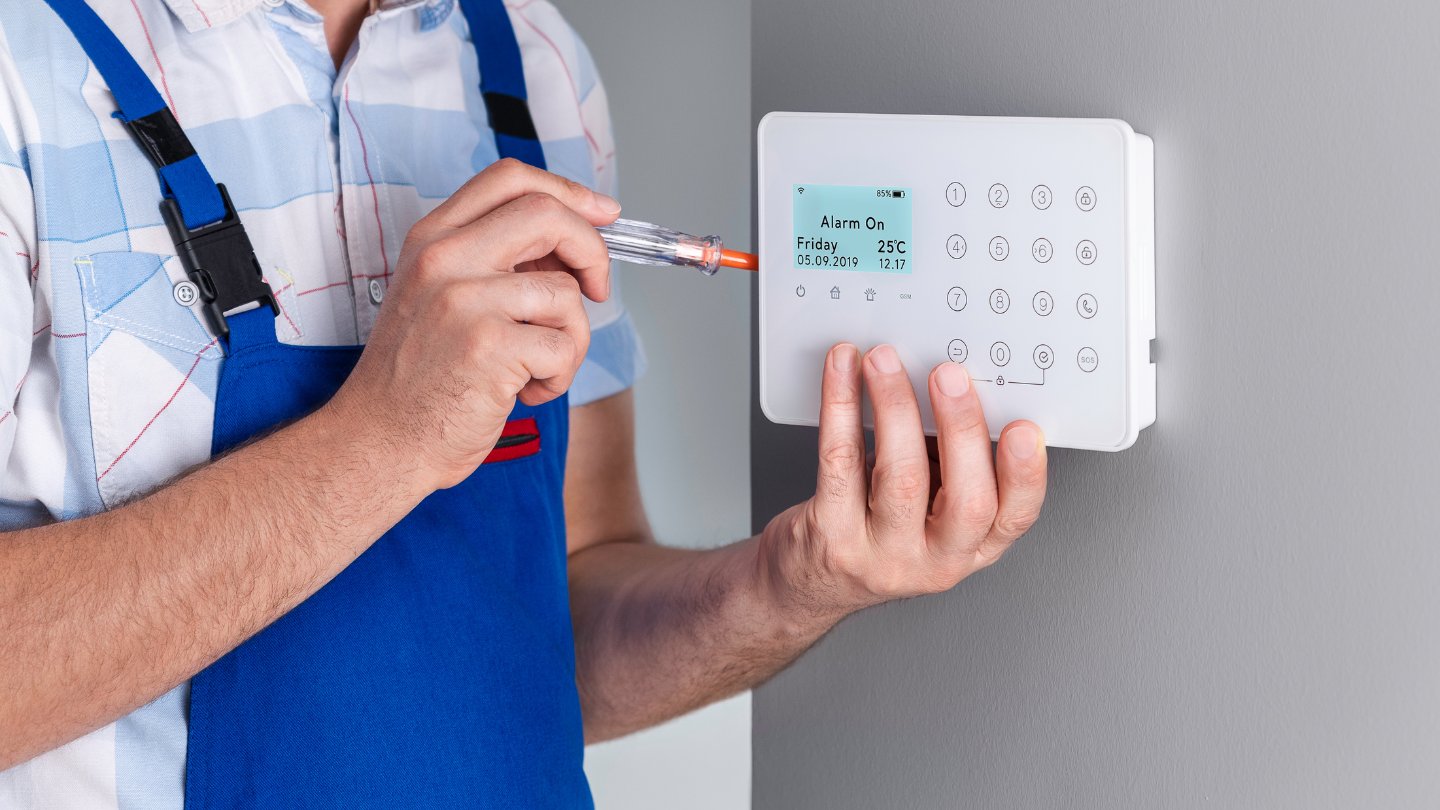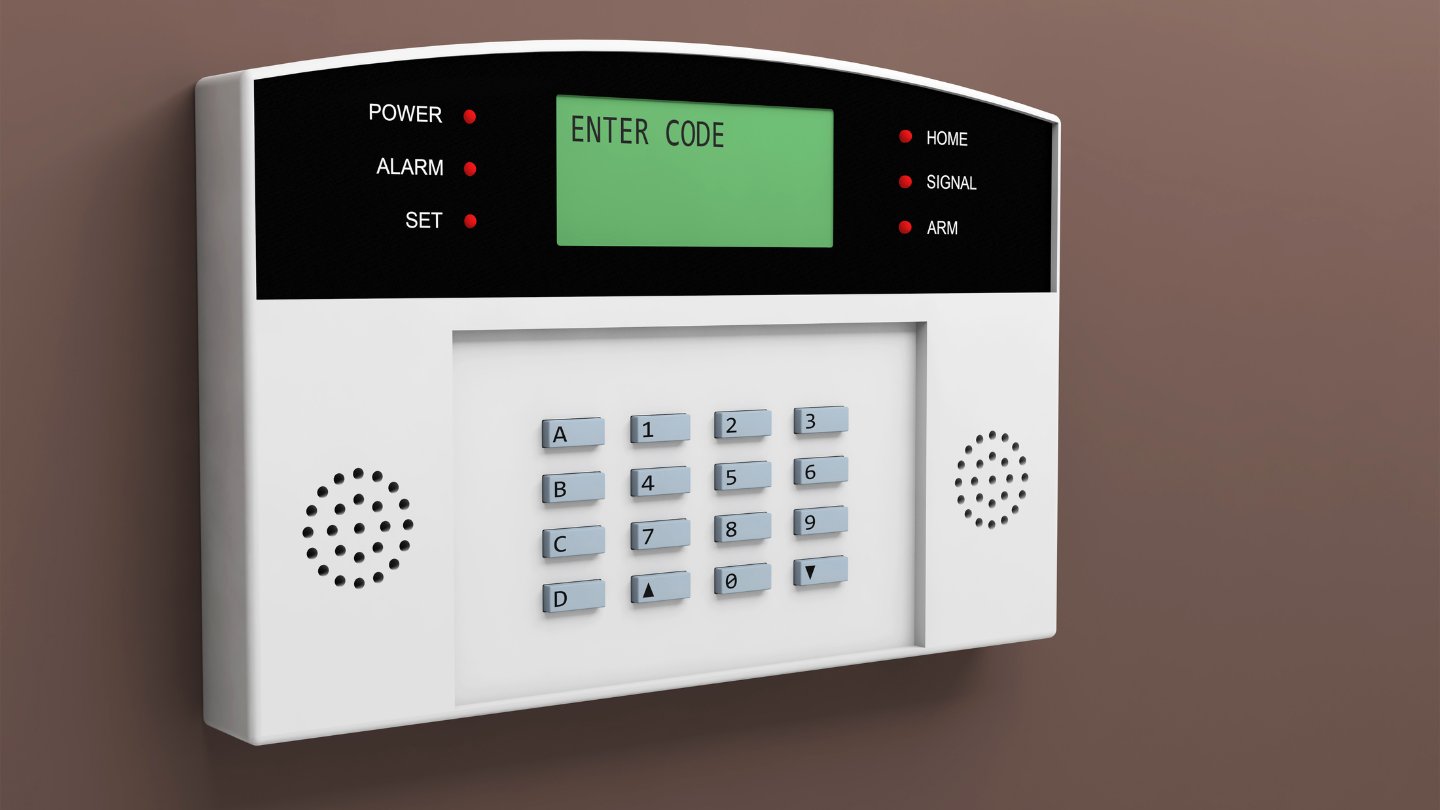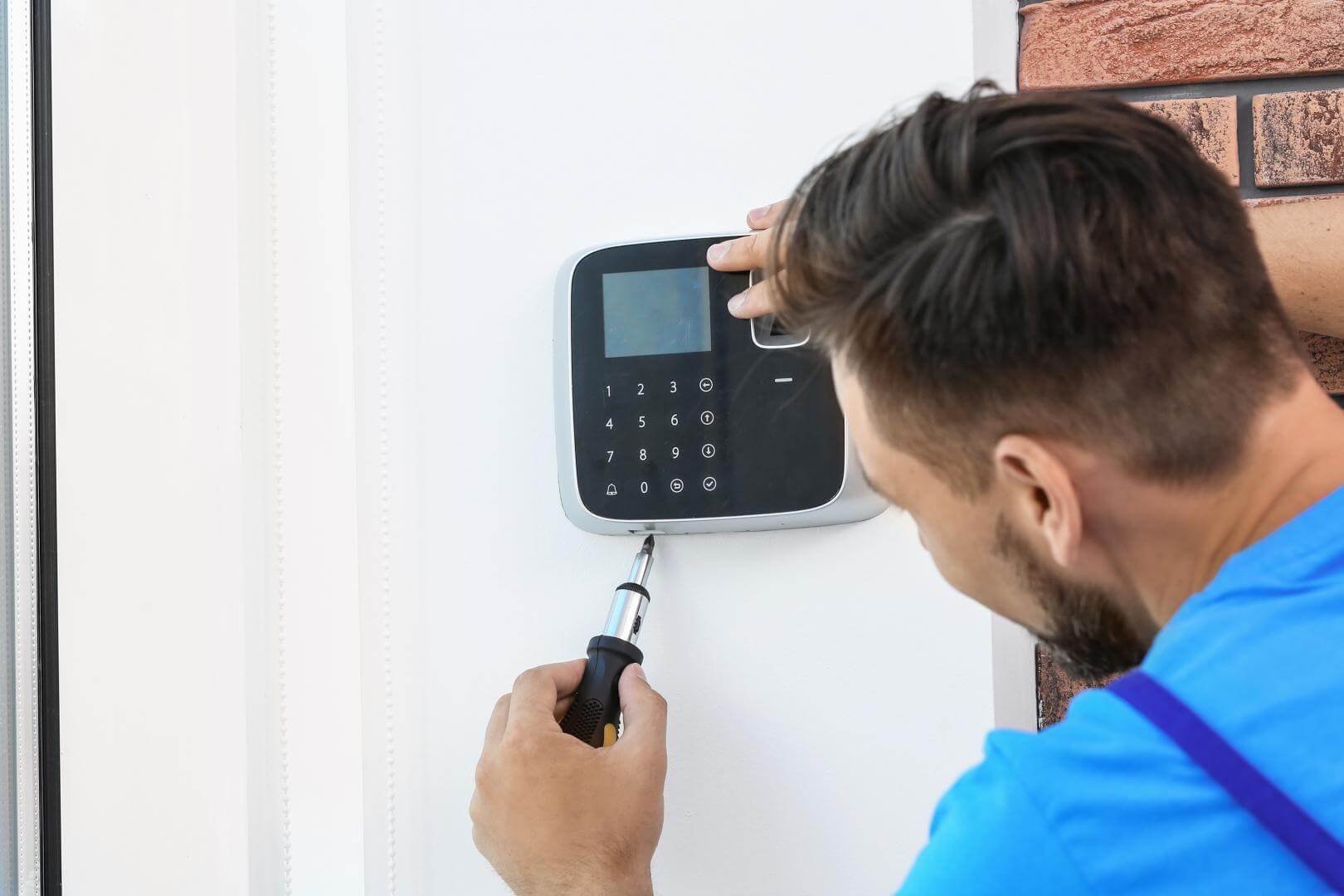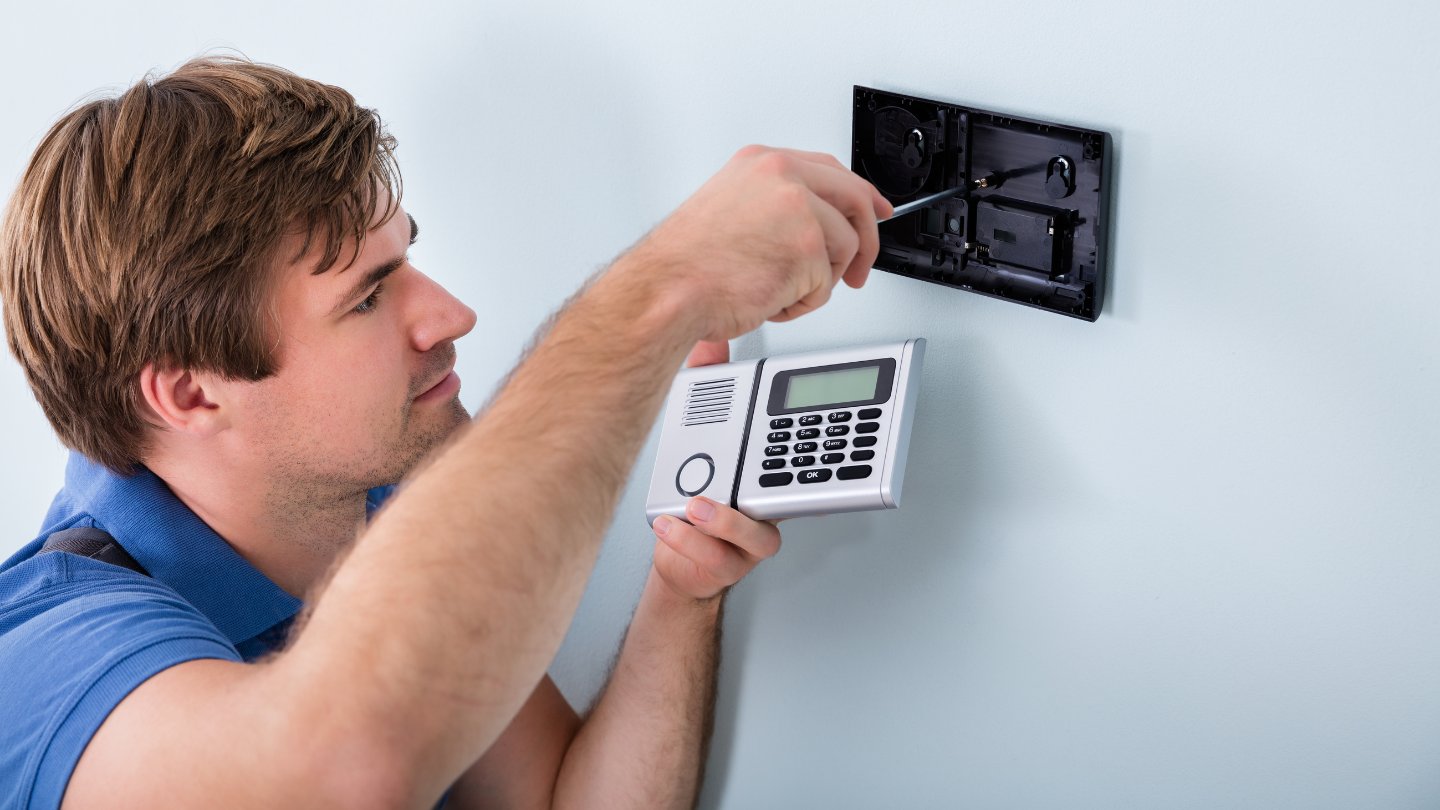Home>Home Security and Surveillance>What Is Central Burglar Alarm
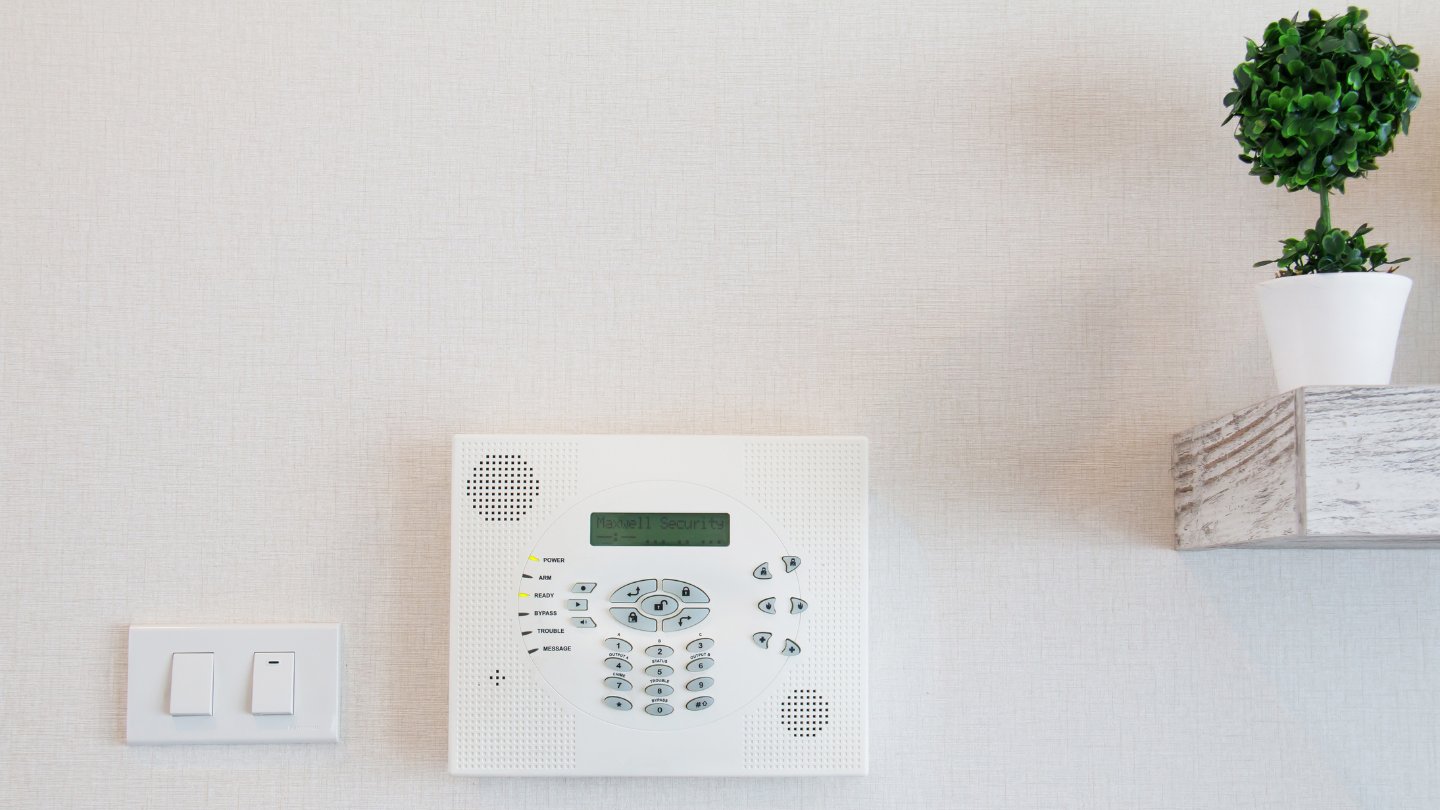

Home Security and Surveillance
What Is Central Burglar Alarm
Modified: October 21, 2024
Learn how a central burglar alarm can enhance your home security and surveillance. Protect your property and loved ones with advanced technology and peace of mind.
(Many of the links in this article redirect to a specific reviewed product. Your purchase of these products through affiliate links helps to generate commission for Storables.com, at no extra cost. Learn more)
Introduction:
Home security is a top priority for many homeowners, and one of the most effective ways to protect your property and loved ones is by installing a central burglar alarm system. In today’s world, where burglaries and break-ins are on the rise, having a reliable security system in place is crucial.
A central burglar alarm system is a comprehensive security solution that provides round-the-clock monitoring and protection for your home. It consists of various components, including sensors, control panels, and alarm devices, all working together seamlessly to detect and deter intruders.
In this article, we will delve into the world of central burglar alarms, exploring their definition, components, working mechanisms, benefits, considerations for choosing a system, installation and maintenance, as well as the associated costs. Whether you are a homeowner looking to enhance your home security or simply curious about how these systems function, this article will provide you with a comprehensive overview.
Key Takeaways:
- Central burglar alarm systems are comprehensive security solutions that protect homes by detecting unauthorized entry and alerting homeowners and authorities. They act as a strong deterrent to potential burglars and provide peace of mind.
- When choosing a central burglar alarm system, consider factors such as property size, monitoring options, integration capabilities, ease of use, and budget. Professional installation and regular maintenance are crucial for ensuring the system’s effectiveness and longevity.
Read more: What Is Local Burglar Alarm?
Definition of Central Burglar Alarm:
A central burglar alarm, also known as a burglar alarm system or intruder alarm system, is a security system designed to detect unauthorized entry into a building or premises. It serves as a deterrent to potential burglars and provides peace of mind to homeowners by alerting them and the relevant authorities when a breach occurs.
The central burglar alarm system consists of various interconnected components that work together to protect the premises. These components include sensors, control panels, alarm devices, and a central monitoring station.
The sensors, typically installed on doors, windows, and other access points, detect any unauthorized entry or movement within the premises. They can be in the form of magnetic contacts, infrared motion detectors, or glass-break sensors.
The control panel acts as the brain of the system, processing information from the sensors and initiating the appropriate response. It allows users to arm or disarm the system, set up alarm zones, and program various settings.
The alarm devices, such as sirens, strobe lights, or even automated phone calls, are activated when the system is triggered. They are designed to alert the occupants of the premises and draw attention to the potential break-in.
Lastly, the central monitoring station or security company provides an additional layer of protection by monitoring the system 24/7. When an alarm is triggered, they receive the notification and take the necessary actions, such as contacting the homeowners and dispatching emergency personnel if required.
Ultimately, a central burglar alarm system not only detects potential intrusions but also acts as a deterrent. The presence of visible sensors and signs indicating the presence of an alarm system can discourage would-be burglars from targeting a property.
When choosing a central burglar alarm system, it is important to consider factors such as the size of the premises, the level of security required, and any specific features or integration with other security systems. Consulting with a reputable security provider can help determine the most suitable system for your needs.
Components of a Central Burglar Alarm:
Central burglar alarm systems consist of several key components that work together to provide comprehensive security for your home. Understanding these components is essential for choosing the right system for your needs. Here are the main components of a central burglar alarm:
- Sensors: Sensors are placed in strategic locations throughout your property to detect unauthorized entry. Common types of sensors include door/window contacts, motion detectors, glass-break sensors, and smoke detectors. These sensors send signals to the control panel when they are triggered.
- Control Panel: The control panel is the brain of the alarm system. It receives signals from the sensors and processes them to determine if there is an intrusion. It also allows you to arm or disarm the system and perform other control functions.
- Keypad or Control Interface: The keypad or control interface is used to interact with the control panel. It enables you to enter security codes, arm or disarm the system, and access various features and settings.
- Siren or Alarm Device: When an intrusion is detected, the siren or alarm device is activated. It emits a loud sound to alert both the occupants of the premises and nearby neighbors. The presence of a loud siren can often be enough to scare away intruders.
- Central Monitoring Station: Many central burglar alarm systems are monitored by a central monitoring station. When the alarm is triggered, it sends a signal to the monitoring station, which can then dispatch authorities or notify the homeowner accordingly.
- Backup Power Supply: To ensure uninterrupted operation, central burglar alarm systems are equipped with a backup power supply, typically in the form of a battery. This ensures that the system remains functional even during power outages.
- Remote Access: Some modern central burglar alarm systems offer remote access features, allowing you to control and monitor your system using a mobile app or a web interface. This gives you the ability to arm or disarm the system, receive alerts, and view security camera footage from anywhere.
These components work together harmoniously to create a robust and effective security system for your home. By understanding each component and its role, you can make informed decisions when selecting a central burglar alarm system that meets your specific needs and budget.
How Central Burglar Alarms Work:
Central burglar alarms operate based on a simple principle – detecting unauthorized entry or movement and activating an alarm to alert homeowners or authorities. Let’s dive into the inner workings of these systems:
1. Sensors: Sensors are strategically placed throughout the premises, typically on doors, windows, and other potential access points. These sensors can be magnetic contacts, infrared motion detectors, or glass-break detectors. When a sensor is triggered, it sends a signal to the control panel.
2. Control Panel: The control panel is the central processing unit of the alarm system. It receives signals from the sensors and interprets the information to determine if an intrusion has occurred. Based on pre-programmed settings, the control panel then initiates the appropriate response.
3. Arming and Disarming: Before leaving the property or going to bed, homeowners can arm the alarm system using a keypad or remote control. When armed, any triggered sensors will activate the alarm. To disarm the system, homeowners enter their security code, temporarily disabling the alarm.
4. Alarm Activation: When a sensor detects unauthorized entry or movement, it sends a signal to the control panel. The control panel processes the signal and triggers the alarm devices. These devices can include sirens, strobe lights, or automated phone calls to alert the homeowners and deter intruders.
5. Central Monitoring: Many central burglar alarms are connected to a central monitoring station. When the alarm is activated, the monitoring station is notified. They can then contact the homeowners to verify the situation and, if necessary, notify the relevant authorities to dispatch help.
6. Backup Power: To ensure uninterrupted functionality, central burglar alarm systems have a backup power supply, typically in the form of a battery. This ensures that the system remains operational even during power outages.
7. Remote Access: Some modern alarm systems allow homeowners to remotely control and monitor their systems via mobile apps or web interfaces. This feature enables them to arm or disarm the system, receive real-time notifications, and view security camera footage from anywhere.
Overall, central burglar alarm systems work by detecting intrusions through sensors, activating an alarm to deter intruders, and notifying homeowners or central monitoring stations for prompt action. The combination of these components creates a reliable security system that enhances the safety and well-being of your home and loved ones.
Benefits of Central Burglar Alarms:
Central burglar alarm systems offer a range of benefits that contribute to the overall security and peace of mind of homeowners. Here are some of the key advantages of installing a central burglar alarm:
- Deterrence: The presence of visible burglar alarm systems, including sensors and signage, acts as a strong deterrent to potential burglars. Most intruders are more likely to target properties without visible security systems, making them more vulnerable to break-ins.
- Early Detection and Response: Central burglar alarms are designed to detect unauthorized entry or movement promptly. This enables homeowners, as well as central monitoring stations, to be notified in real-time, allowing for swift response and increased chances of apprehending intruders.
- Peace of Mind: Knowing that your home is protected by a central burglar alarm provides peace of mind. Whether you are at home or away, you can have confidence that your security system is actively monitoring for potential break-ins, keeping your family and belongings safe.
- Reduced Losses: In the event of a break-in, central burglar alarms can minimize losses. By activating the alarm and alerting occupants or authorities, the system can potentially scare off intruders and reduce the amount of time they have to steal or cause damage.
- Integration with Other Security Systems: Central burglar alarms can easily integrate with other security systems, such as surveillance cameras, access control systems, and fire detection systems. This integration provides a comprehensive security solution, allowing for a more efficient and cohesive approach to home security.
- Remote Access and Control: Many central burglar alarm systems offer remote access features. Through mobile apps or web interfaces, homeowners can control and monitor their systems from anywhere. This feature allows for convenient arming or disarming of the system and receiving real-time notifications.
- Potential Insurance Discounts: Installing a central burglar alarm system may lead to lower home insurance premiums. Insurance companies often offer discounts to homeowners who have reliable security systems in place, as they are considered less of a risk for potential burglaries and damages.
Investing in a central burglar alarm system is an effective and proactive measure to protect your home, belongings, and loved ones. The combination of deterrence, early detection, peace of mind, and potential savings make these systems an invaluable asset for homeowners seeking enhanced security.
Read more: What Is A Burglar Alarm System
Considerations When Choosing a Central Burglar Alarm System:
Choosing the right central burglar alarm system for your home is crucial in ensuring effective security and peace of mind. To help you make an informed decision, here are some key considerations to keep in mind:
- Property Size and Layout: Consider the size and layout of your property. Larger homes may require more sensors and a more extensive system to adequately cover all entry points. Understanding your property’s specific needs will help you select an alarm system that provides comprehensive coverage.
- Monitoring Options: Decide whether you want a system that includes professional monitoring by a central monitoring station or one that allows self-monitoring. Professional monitoring provides an extra layer of security, as trained professionals can respond to alarms and dispatch emergency services if needed.
- Wireless vs. Hardwired: Determine whether you prefer a wireless or hardwired system. Wireless systems are typically easier to install and offer more flexibility, while hardwired systems may be more reliable and long-lasting but require professional installation.
- Integration with Other Systems: Consider whether you want your central burglar alarm system to integrate with other security systems, such as surveillance cameras or access control systems. This integration can enhance the overall security of your property and provide a more comprehensive solution.
- Ease of Use: Look for a system that is user-friendly and easy to operate. A complex or confusing interface can lead to difficulties in arming or disarming the system, potentially compromising your home’s security.
- Smart Features: If you value convenience and remote access, consider a system that offers smart features like mobile app control, real-time alerts, and integration with smart home devices. These features allow you to monitor and control your system from anywhere using your smartphone or other smart devices.
- Reliability and Durability: Ensure that the system you choose is reliable and durable. Look for reputable brands and read customer reviews to assess the system’s quality and performance over time.
- Budget and Costs: Determine your budget for a central burglar alarm system, including installation costs, equipment costs, and any monthly monitoring fees. Consider the long-term value and benefits of the system against the associated costs.
- Local Regulations: Familiarize yourself with any local regulations or requirements related to burglar alarm systems. Some areas may have specific rules regarding installation, permits, or false alarm fines.
By considering these factors, you can choose a central burglar alarm system that suits your specific needs, provides reliable security, and aligns with your budgetary requirements. It is also advisable to consult with a professional security provider who can assess your home and recommend the most appropriate system for your circumstances.
Installation and Maintenance of Central Burglar Alarms:
Proper installation and regular maintenance are essential for ensuring the effectiveness and longevity of your central burglar alarm system. Here are some key points to consider when it comes to installation and maintenance:
Installation:
Professional Installation: It is highly recommended to have your central burglar alarm system professionally installed by experienced technicians. They have the expertise to correctly position sensors, install the control panel, and ensure proper wiring or wireless connectivity. Professional installation ensures that the system functions optimally and avoids any potential installation mistakes that could compromise its effectiveness.
System Design: Work with the installer to design a system tailored to your specific needs. This includes determining the optimal sensor placement, considering the layout and size of your property, and identifying the areas that require enhanced security coverage. Customizing the system design will help maximize its effectiveness in detecting and deterring intruders.
User Training: Once the installation is complete, ask the installer to provide thorough training on how to operate and interact with the central burglar alarm system. This includes understanding how to arm and disarm the system, bypass zones if necessary, and address any operational concerns you may have. Proper training ensures that you can confidently use and manage the system to its full potential.
Maintenance:
Regular Testing: Periodically test your central burglar alarm system to ensure that all components, including sensors and alarms, are functioning correctly. Follow the manufacturer’s recommendations for testing frequency and procedures. Regular testing allows you to identify and address any issues promptly, ensuring the system is always in proper working order.
Battery Replacement: The backup power supply, typically in the form of a battery, should be checked and replaced as needed. Batteries have a limited lifespan and can lose their capacity over time. Regularly inspect and replace batteries to ensure uninterrupted operation of your burglar alarm system, especially during power outages.
Keep Sensors Clean: Dust, dirt, and debris can compromise the effectiveness of sensors. Regularly clean and inspect sensors to ensure they are free from any obstructions. Be careful when cleaning to avoid damaging the components or interfering with their functionality.
Stay Updated: Stay informed about any software or firmware updates for your central burglar alarm system. These updates may contain important security patches, bug fixes, or new features that enhance the performance and protection of your system. Check the manufacturer’s website or consult with your security provider regarding updates.
Service and Support: Maintain a relationship with a reputable security provider who can provide ongoing service and support for your central burglar alarm system. They can assist with system troubleshooting, upgrades, and any necessary repairs. Regularly communicate with your provider to address any concerns or questions you may have regarding the maintenance of your system.
By ensuring proper installation and regular maintenance, you can maximize the effectiveness and reliability of your central burglar alarm system. This proactive approach is essential in safeguarding your home, deterring potential intruders, and providing continued peace of mind for you and your family.
Read more: What Is A Direct Burglar Alarm?
Cost of Central Burglar Alarm Systems:
The cost of a central burglar alarm system can vary depending on several factors, including the size of your property, the level of security desired, and the specific features and components of the system. Here are some key factors to consider when evaluating the cost of a central burglar alarm:
Equipment Costs:
The cost of the equipment itself is a primary consideration. This includes sensors, control panels, keypads, alarm devices, and any additional components such as surveillance cameras or access control systems. The price can vary depending on the quality, brand, and specific features of the equipment you choose.
Installation Costs:
Professional installation is recommended to ensure proper setup and functionality of your central burglar alarm system. Installation costs can vary depending on the complexity of the system, the size of the property, and any additional customization required. It’s best to obtain quotes from reputable security providers to get an accurate cost estimate for installation.
Monitoring Fees:
If you opt for professional monitoring services, there may be ongoing monthly or annual fees associated with the service. These fees cover the costs of 24/7 monitoring by a central station and may vary depending on the level of service and the specific security provider you choose. Be sure to inquire about monitoring fees and any contractual obligations before selecting a monitoring service.
Read more: What Are UL Burglar Alarm Inspections
Maintenance and Service Costs:
Proper maintenance and servicing of your central burglar alarm system are essential for its optimal performance. While some maintenance tasks can be performed by homeowners, it’s recommended to have a professional service the system periodically to ensure everything is in working order. Maintenance and service costs can vary depending on the provider and the level of service required.
Additional Features and Integration:
If you wish to integrate your central burglar alarm system with other security systems, such as surveillance cameras or access control systems, there may be additional costs associated with these features. The price can vary depending on the specific equipment and integration requirements.
Insurance Discounts:
It’s worth noting that having a central burglar alarm system installed in your home may lead to discounts on your home insurance premiums. Insurance companies often offer reduced rates for homes with reliable security systems in place. Be sure to check with your insurance provider to determine if any discounts are available and how they may impact the overall cost of your system.
When considering the cost of a central burglar alarm system, it’s important to weigh the value it provides in terms of enhanced security, peace of mind, and potential insurance savings. While there may be upfront costs involved, the long-term benefits often outweigh the initial investment.
Frequently Asked Questions about Central Burglar Alarms:
Read more: What To Do If A Burglar Alarm Goes Off
1. Are central burglar alarms effective in preventing break-ins?
While no security measure can guarantee complete prevention, central burglar alarm systems are highly effective in deterring potential break-ins. The visible presence of an alarm system, combined with sensors and alarms, serves as a strong deterrent to burglars. In the event of an intrusion, the alarm activation can help scare off intruders and alert homeowners or authorities for a swift response.
2. How long does it take to install a central burglar alarm system?
The installation time can vary depending on the complexity of the system and the size of the property. In general, professional installation can take a few hours to a day. More extensive or customized systems may require additional time. It’s best to consult with a security provider to get a specific timeframe for your installation.
3. Can I install a central burglar alarm system myself?
While it is possible to install a central burglar alarm system yourself, it is highly recommended to have it professionally installed. Professional installers have the knowledge and expertise to properly position sensors, ensure proper wiring or wireless connectivity, and optimize the system for maximum effectiveness. Improper installation can lead to compromised security and false alarms.
4. Do central burglar alarm systems require ongoing maintenance?
Yes, central burglar alarm systems require regular maintenance to ensure they consistently function as intended. This includes testing the system periodically, cleaning and inspecting sensors, replacing batteries, and keeping the system up to date with any software or firmware updates. Regular maintenance helps identify and address any issues promptly, ensuring the system remains reliable and effective.
Read more: How To Disable A Burglar Alarm
5. Can I integrate my central burglar alarm system with other security systems?
Yes, central burglar alarm systems can often be integrated with other security systems such as surveillance cameras, access control systems, or fire detection systems. Integration allows for a more comprehensive security solution and centralized control. Consult with a security provider to determine compatibility and the available integration options for your specific system.
6. Can I control my central burglar alarm system remotely?
Many modern central burglar alarm systems offer remote access and control features. Through mobile apps or web interfaces, homeowners can arm or disarm the system, receive real-time alerts, and even view security camera footage remotely. Remote access provides convenience and peace of mind, allowing you to monitor and manage your system from anywhere.
7. Will my central burglar alarm system still work during a power outage?
Central burglar alarm systems generally have backup power supplies, such as batteries, to ensure they remain functional during power outages. This backup power ensures that the system can continue to operate and provide protection even when the main power is unavailable. Regularly check and replace backup power supplies as needed to ensure uninterrupted operation.
8. How do I choose the right central burglar alarm system for my home?
Choosing the right central burglar alarm system involves considering factors such as the size and layout of your property, monitoring options, integration capabilities, ease of use, and budget. Consulting with a reputable security provider can help assess your needs and guide you towards the most suitable system for your specific requirements and circumstances.
It’s important to note that this list of frequently asked questions is not exhaustive, and it’s always advisable to consult with a security professional or your chosen security provider to address any specific questions or concerns you may have about central burglar alarms.
Read more: How To Wire A Burglar Alarm Panel
Conclusion:
Central burglar alarm systems play a crucial role in protecting your home and loved ones from potential break-ins and intrusions. With their comprehensive components, effective detection mechanisms, and round-the-clock monitoring, these systems provide a high level of security and peace of mind. They act as a strong deterrent, detect unauthorized entry, and swiftly alert homeowners or authorities when an intrusion occurs.
By investing in a central burglar alarm system, you not only enhance the safety of your home but also reduce potential losses in the event of a break-in. The presence of a reliable security system can discourage burglars and minimize their time to steal or cause damage, ultimately increasing the chances of their capture.
When choosing a central burglar alarm system, it’s important to consider factors like property size, monitoring options, integration capabilities with other security systems, ease of use, and budget. Professional installation and regular maintenance are crucial for ensuring the effectiveness and longevity of the system.
While there may be upfront costs associated with central burglar alarm systems, the long-term benefits are significant. Not only do these systems provide enhanced security, but they can also potentially lead to insurance discounts, offering even greater value over time.
Ultimately, investing in a central burglar alarm system is an investment in the safety and well-being of your home and loved ones. With the availability of various features, customization options, and remote access capabilities, you can choose a system that meets your specific security needs and provides convenience in managing and monitoring your home security.
With the information provided in this article, you are now equipped with the knowledge to make informed decisions when it comes to central burglar alarm systems. Take the necessary steps to protect your home and enjoy the peace of mind that comes with knowing your property is secure.
Frequently Asked Questions about What Is Central Burglar Alarm
Was this page helpful?
At Storables.com, we guarantee accurate and reliable information. Our content, validated by Expert Board Contributors, is crafted following stringent Editorial Policies. We're committed to providing you with well-researched, expert-backed insights for all your informational needs.
